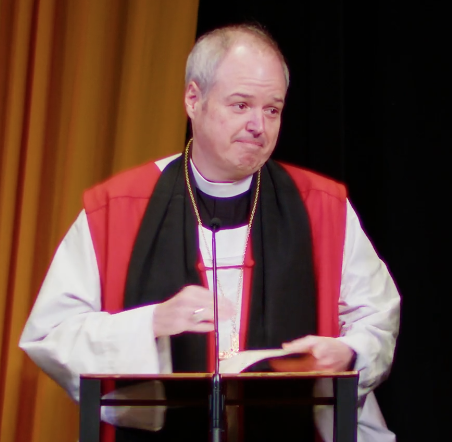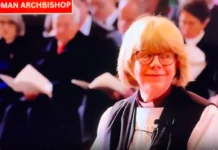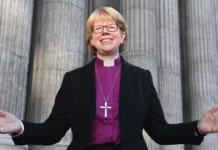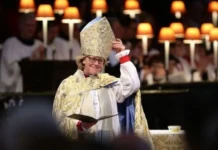It has been a long time since I had back-to-school butterflies, but this year, I am experiencing something similar right alongside my daughter, who started middle school this week. That’s because on Nov. 1, I will become the presiding bishop of the Episcopal Church. In my new job, I will be the chief pastor and chief executive office of our denomination, which comprises more than 100 dioceses in 17 countries across the world.
To be honest, some days I have mixed feelings. I’m excited about this new call, but it requires me to step down as bishop of Northwestern Pennsylvania, one of the best jobs anyone could ever hope to have. My family and I will still live in Erie, and I will never stop loving this region, where I have lived my entire life. But I will no longer be the local Episcopal bishop, and the work I have been privileged to do with lay and clergy leaders for the last 17 years will pass, in time, to a new bishop. It will be up to others to imagine the future of the Episcopal Church in this place.
Meanwhile, God has called me and the wider Episcopal Church to take on a daunting challenge. Like other mainline Christian denominations, we are facing an urgent need to make profound changes to our institutional structures. If we are to survive and thrive in the coming decades, we will need to become a church that, in many ways, our forebearers in the faith would not recognize.
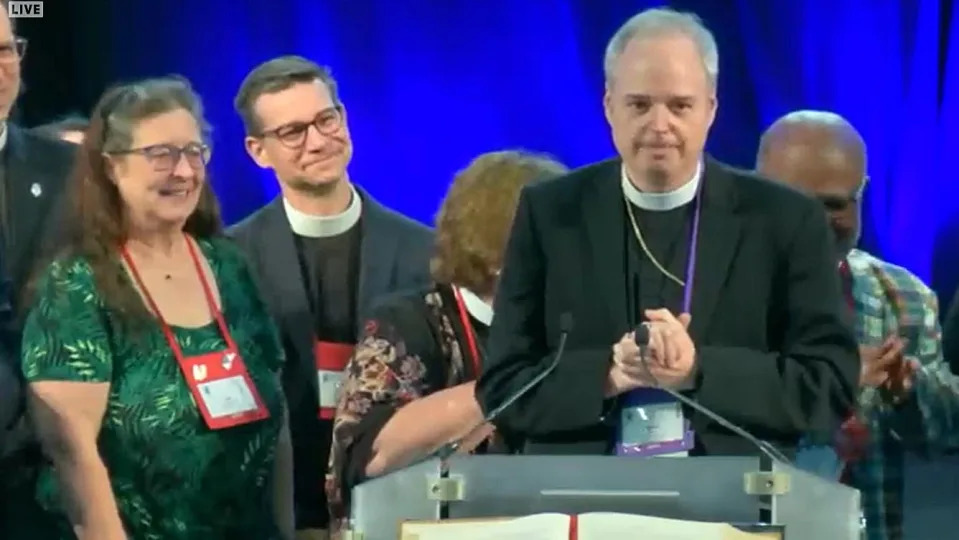
It is an understatement to say this work will not be easy. And if I am up to the task to which God has called me, it is because I am a son of this region. Here in northwestern Pennsylvania, our economy and our climate have taught us to be resilient and resourceful. Christians in more prosperous parts of the country may be facing the challenges of institutional decline for the first time, but here in Erie, we have already seen things we love go away. And we know that the one thing you don’t do at a time like this is give up.
We are practical people here. We know how to have direct and authentic conversations. We know how to speak hard truths without sugarcoating them. When we have big ideas, we expect people to kick the tires and tell us what they really think, with plenty of doubt and skepticism mixed in. As Ohio author David Giffels says, we often do things the hard way on purpose. In the end, however, we usually agree to give innovation a try, because we know that the old ways are no longer working for us.
My new job is going to require a lot of these kinds of plainspoken conversations and a lot of persuading people to try new ideas. The whole church will need to learn from the people of this region, who have learned to face the future and find hope even when the factory closes up, or the downsizing hits hard, or the young people leave in search of better opportunities. And I will continue to look for inspiration to the leaders of the Episcopal Diocese of Northwestern Pennsylvania, who have taken on the challenges of ministry with fewer people and resources while at the same time embracing the Episcopal Church’s journey toward full inclusion of LGBTQ people and reckoning with the evil of racism.
In Matthew’s Gospel, Jesus compares the kingdom of heaven to a mustard seed and a pearl. Both of these are small, easily hidden items that have the potential to create astonishing, transformative change. Northwestern Pennsylvania is just this kind of treasure, and in God’s economy, our gifts are not buried or disregarded. Rather, other dioceses study our example, and our hard-won faithfulness and resilience is prized. No matter where God calls me, I will always know that here in this beloved place, it is a great day in the Kingdom.
The Rt. Rev. Sean Rowe is bishop of the Dioceses of Northwestern Pennsylvania and Western New York. On Nov. 1, he will become the 28th Presiding Bishop of The Episcopal Church.
